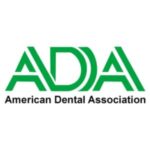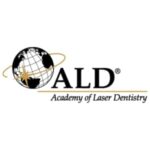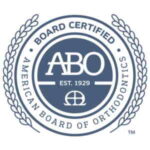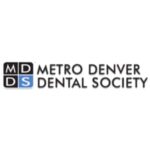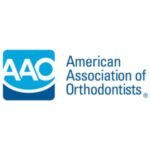Everything you should know about Underbite
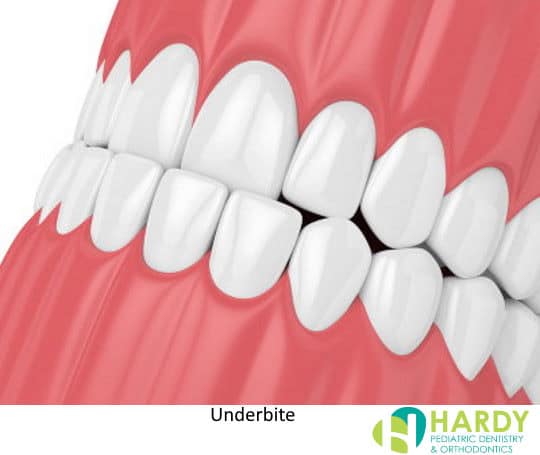
A lower jaw that protrudes forward is referred to as an underbite in dentistry. As a result, the lower jaw extends beyond the upper teeth. The severity of the underbite can range from minor to severe, with the lower jaw overlapping the upper jaw and the teeth failing to contact due to the large gap in teeth.
What Causes an Underbite? | Types of Underbites | What issues does an underbite cause? | How to Treat an Underbite | Overbite Vs Underbite
What Causes an Underbite?
Normally, your teeth grow in such a way that the top teeth cover the lower teeth. The molars should be able to fit together. However, a person's development of such a disease is caused by a number of variables. Here are a few examples:
Genetics
If a member of your family has this ailment, you are more likely to get it. Genetics also determines a person's jaw, tooth form, and size.
As a result, some people are born with teeth that are unusually close together, impacted, do not grow all of their teeth (hypodontia), are irregularly shaped, overjet, or teeth that do not fit together.
Childhood Habits
Some childhood practices can aid in the development of an underbite. These are the habits:
- Nail biting
- Thumb sucking (can also cause tongue thrust.)
- Pushing of the teeth using the tongue
- Use of a pacifier for children above three years old
- Long-term bottle-feeding
- Bad oral hygiene habits (which also causes dental plaque and tooth decay)
Injury
Severe injuries to the jawbones may result in permanent damage. Although it is generally feasible to restore a fractured jawbone, the jaws usually do not fit properly even after surgical realignment.
Tumors
Tumors in the jawbones or the mouth may cause the jaws to protrude, resulting in an underbite. See more on mouthbreathing
Types of Underbites
There are two types of underbites.
Dental underbites Are teeth misalignments that develop when a crossbite appears in the front of the mouth rather than the sides. The teeth are somewhat forward, but the lower jaw does not protrude.
Skeletal underbites arise as a result of a jawbone deformity It is frequently inherited. More about Behind the teeth.
What issues does an underbite cause?
An underbite is more than simply an aesthetic concern. According to the American Dental Association (ADA), the more serious this disease is, the more likely it is to produce oral health issues such as:
- Speak-ability issues
- Malocclusion causes discomfort in the mouth and face.
- Difficulty chewing food
- Sleep apnea
- Prognathism
- Tooth enamel eroding excessively
- Chronic mouth breathing and bad breath
Furthermore, if you have a prominent underbite, it will impact your confidence. More about Bite Alignment
How to Treat an Underbite
A slight misalignment is common especially when most of the permanent teeth haven't undergone tooth eruption yet. However, in other circumstances, the underbite is severe enough that those who have their underbite repaired will benefit more significantly. Clinical medicine cannot cure underbite alone, therefore let Hardy Orthodontics to assist you in correcting your underbite issues.
Here are a few of them:
- It will put less strain on the jaws, teeth, and face muscles.
- Your teeth are simple to keep clean.
- Reduce your chances of getting dental abscess.
- It prevents problems in the gums.
- It lowers the chances of a tooth being broken or tooth loss.
- Reduces the chance of developing a temporomandibular joint disorder
The only option to remedy this issue is to get it aligned by a specialist. This issue need the assistance of an orthodontist. Dr. Timothy Hardy can treat your underbite with any of the following treatments:
Appliances - A variety of devices can be utilized to treat such a disease. These are custom-made for your mouth and might be painful at times because they are more visible than braces. When necessary, orthodontists prescribe this therapy.
The reverse full facemask is one type of an orthodontic device. This item is comparable to orthodontic headgear that wraps around your head. This method of treating underbite includes connecting metal bands to your upper back teeth so that the device may gently move your upper jaw into appropriate alignment.
Upper jaw expanders are another form of dental device. With a screw in the centre, the upper jaw expander fits over the upper jaw's rear teeth. The purpose is to enlarge the upper jaw, increase the dental arch, and shift the teeth within the bone. However, this is dependent on the pathology of the maxilla and mandible. See details on jaw shifting.
Braces -It is the most often used orthodontics for underbite. Dental braces are unsightly and can be seen when you talk or smile. This issue is solved by using clear aligners.
Tooth Extraction - Extraction of a tooth can reduce crowding and allow for more natural biting.
Surgery - This should only be used as a last option if the orthodontist considers that all other treatments have failed. It only happens on rare instances since surgery is rarely required to address an underbite.
Orthognathic surgery is one type of jaw surgery. This is a customized technique that includes separating your jawbones and performing unique alterations to change jaw alignment.
If you have cleft lip and palate, surgery may be necessary before fixing your underbite. Read orthodontic appliances.
Overbite Vs Underbite
When your mouth is closed, an overbite occurs when your upper teeth overlap the lower teeth excessively. When you have a smaller jaw or your lower jaw is shorter than your upper jaw, you are more likely to develop this problem.
An underbite is when your lower jaw rests in front of the upper jaw when your mouth is closed. When you have this condition, you'll frequently appear to have a protruding chin, but this may be more subdued in less extreme cases.
Underbite Before and After
Have you ever wondered what it's like to have an underbite fixed? Take a look at the before and after photos.
Contact us to schedule an appointment
Become A New Patient

